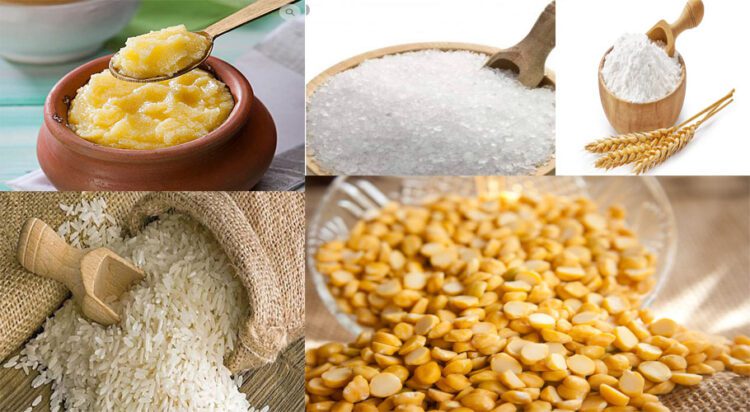Price Reductions
The government has recently announced substantial reductions in the prices of key essential commodities, including various pulses and sugar, aimed at providing relief to the general public amidst rising inflation.
One of the most significant reductions can be seen in the price of black chickpeas. Since September, the cost has dropped by Rs50 per kilogram, offering considerable savings for consumers.
This essential pulse, widely used in households across the country, now stands as a more affordable option for families. Additionally, gram dal, which previously sold for Rs400 per kilogram, has now experienced a decrease, bringing its price down to Rs360 per kilogram.
This reduction is expected to ease the financial burden on households that rely on gram dal as a staple in their diet.
Mash dal, another popular and commonly consumed pulse, has also seen a notable price cut. Previously sold at Rs500 per kilogram, its price has now been lowered to Rs425 per kilogram, making it more accessible to a broader segment of the population.
Moreover, first-grade kabuli chickpeas, which are often used in a variety of dishes, have experienced a significant decrease in price. The cost has been reduced from Rs400 to Rs355 per kilogram, marking a Rs45 drop.
Similarly, smaller kabuli chickpeas have also seen their price reduced. Previously priced at Rs320 per kilogram, they are now available for Rs295 per kilogram, allowing consumers to purchase them at a more reasonable rate.
In addition to the price reductions in pulses, the sugar market has also witnessed a decrease. The wholesale price of sugar now stands at Rs122 per kilogram, while retail prices have stabilized at Rs125 per kilogram.
This reduction comes as a relief to consumers who have been facing rising costs of essential food items over the past few months.
These significant price cuts in essential commodities reflect the government’s efforts to mitigate the impact of inflation and rising costs of living.
By lowering the prices of widely consumed items like pulses and sugar, the government aims to provide some financial relief to households across the country, ensuring that basic necessities remain within reach for the average consumer.
These measures are expected to have a positive impact on both local markets and households, as they alleviate some of the pressure caused by the rising cost of living.
Consumers can now access these essential goods at lower prices, which may, in turn, help improve overall food security and affordability across the nation.


